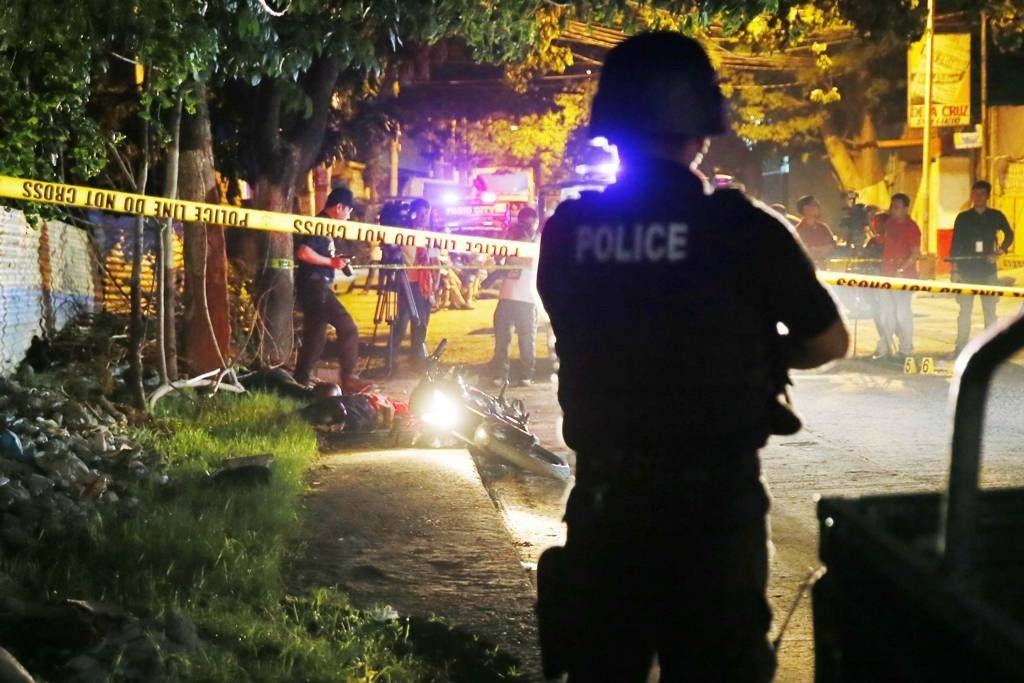‘Extrajudicial killings chief concern in Philippines’

MANILA, Philippines — Extrajudicial killings have been the chief human rights concern in the Philippines for many years and, after a sharp rise with the onset of the anti-drug campaign in 2016, these continued in 2018 with an average of six persons killed daily in operations against illegal drugs, according to the latest annual United States Department of State Country Reports on Human Rights Practices.
“There were numerous reports that government security agencies and their informal allies committed arbitrary or unlawful killings in connection with the government-directed campaign against illegal drugs,” the 2018 report released yesterday said.
It added that “killings of activists, judicial officials, local government leaders and journalists by anti-government insurgents and unknown assailants also continued.”
From January to Sept. 29 last year, the media chronicled 673 deaths in police operations suspected to be connected with the government’s anti-drug campaign.
From July 2016 to July 2018, law enforcement agencies reported that an average of six persons died daily in anti-drug operations. The 105,658 anti-drug operations conducted from July 2016 to September 2018 led to the deaths of 4,854 civilians and 87 members of the security forces.
“The Commission on Human Rights (CHR) suspected the Philippine National Police (PNP) or Philippine Drug Enforcement Agency (PDEA) of involvement in 208 of these new complaints and the Armed Forces of the Philippines or paramilitary personnel in 19 cases,” the report said.
“The PNP’s institutional deficiencies and the public perception that corruption was endemic within the force continued,” it said.
A number of United Nations special rapporteur or working group visit requests remained pending, according to the report.
In February 2018, Prosecutor Fatou Bensouda of the International Criminal Court (ICC) announced the opening of a preliminary examination of potential crimes, including extrajudicial and other killings, allegedly committed since July 1, 2016 in the government’s anti-drug campaign.
In a March 2018 speech, President Duterte ordered security forces not to respond to any probe or investigation request on human rights abuses in the country. In the same month, the Philippines submitted a formal notification of withdrawal from the ICC’s Rome Statute, which will take effect one year after the notification.
The ICC expressed regret over the Philippines’ move and encouraged the country to remain part of the ICC.
A withdrawal, however, has no impact on ongoing proceedings or any matter which was already under consideration by the ICC prior to the date on which the withdrawal became effective nor on the status of any judge serving at the court.
In its report of activities released on Dec. 5, the ICC said it would continue the preliminary examinations of alleged crimes against humanity, given the high number of killings in Duterte’s war on drugs.
Bensouda said the Philippines’ withdrawal from the ICC would become effective on Sunday or a year after the government deposited its withdrawal with the UN. Under the Rome Statute, examinations that started before the withdrawal will not be affected.
“The office will also continue to record allegations of crimes committed in the Philippines to the extent that they may fall within the jurisdiction of the court,” the ICC prosecutor said.
During the release of the report, US Secretary of State Michael Pompeo said every year since 1977, the State Department has, through the report, put the world on notice that the US will expose violation of human rights wherever they occur.
Pompeo said the US has told those who disgrace the concept of human dignity “they will pay a price and that their abuses will be meticulously documented and then publicized.”
“By articulating abuses and pressuring non-compliant regimes, we can effect change. We’ve certainly seen that. Over the years, this report has pushed governments to change course and cease engaging in brutality and other abuses,” he said.
“We hope that it will continue to do so and cause oppressive regimes to honor human rights in places where those voices are often silenced and where deep yearnings for tolerance and respect have for too long gone unfulfilled,” he added.
Ambassador Michael Kozak, senior bureau official, Bureau of Democracy, Human Rights and Labor at the State Department, said countries are not ranked as worst or best in the Human Rights Report but the State Department said it reports facts on each country as best it can assess them and let the reader draw conclusions.
“And I think if you go through the reports, if you see a country that says there were no reports of egregious human rights violations, that’s probably in the pretty good category, even though when you read the body, there may be some issues, but at least, they’re not these really serious ones,” Kozak said.
“But then, if you look at another one, and they’ve got extrajudicial killing, they’ve got torture, they’ve got rape as a weapon of war, killing journalists, closing down independent media – bang, bang, bang, all of those things, you’d say, ‘Well, that probably fits in the worst category or pretty close to it,’” he added.
- Latest
- Trending





























